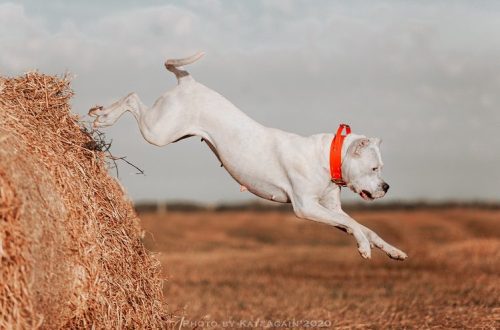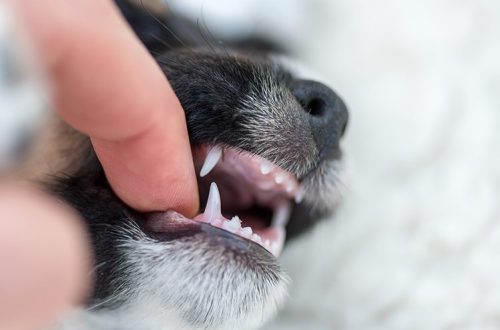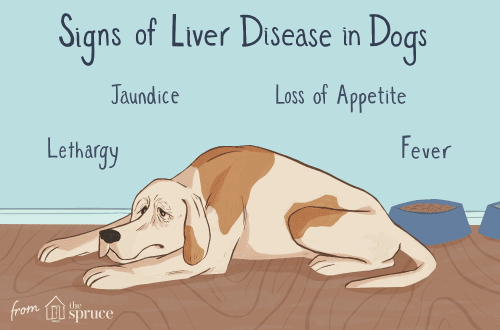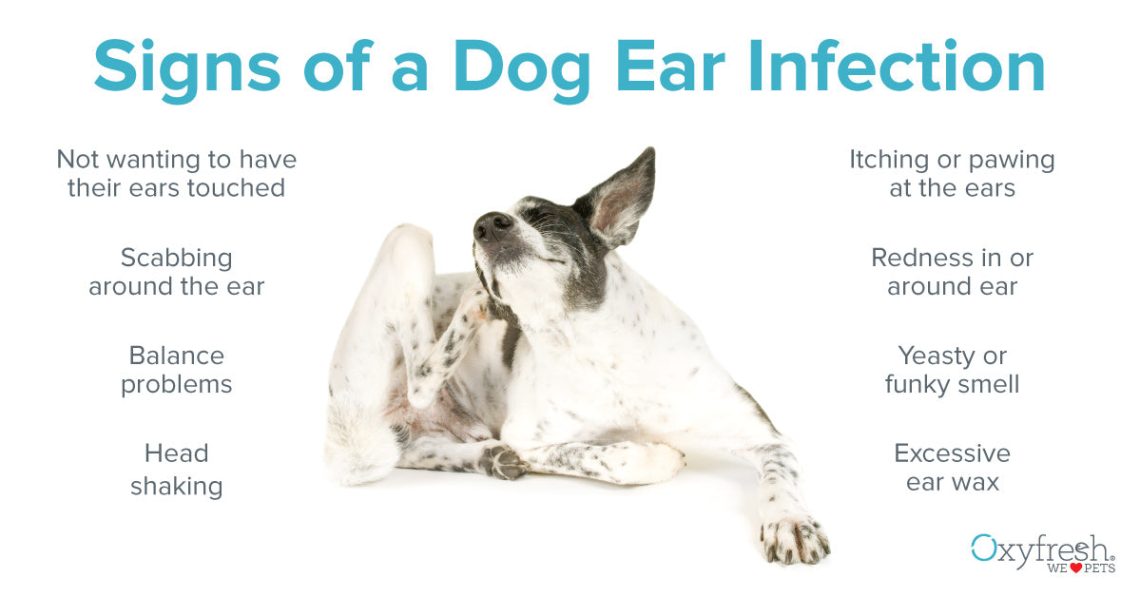
Why does a dog shake its head or ears and what to do?
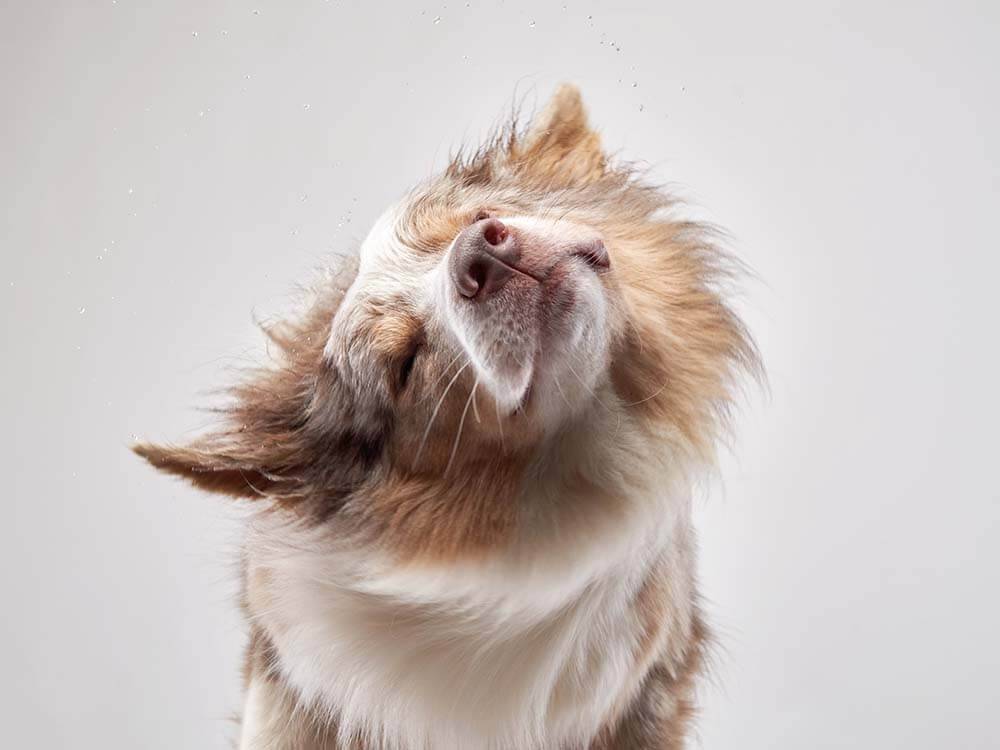
Contents
6 reasons why a dog shakes its head or ears
Mud, mat, or water on the head
One of the most innocuous reasons why a dog shakes its head is when it is trying to get rid of the discomfort associated with the fact that some dirt has stuck to the head or hair, liquid has got into the auricle, or a tangle has formed in the head area.
All these reasons do not in themselves threaten the life and health of the pet. Symptoms go away as soon as the cause is eliminated.

Foreign body in ear canal
It happens that the dog shakes and shakes his head, scratches his ear when something gets into it. It can be water after bathing or swimming, wool, fragments of toys, cotton buds, plant seeds, any object that accidentally fell into the ear and fell into the ear canal.
The shape of the auditory tube itself is curved, often with a turn of about 90 degrees (depending on the shape of the dog’s head), and ends approximately behind the eye. Therefore, the dog, shaking his head, tries to remove a foreign object. Often this strategy is successful.
Otitis
If the dog constantly shakes his head, then the cause may be otitis externa (inflammation of the ear). It can be called:
parasitosis – the most common parasite that causes itching and inflammation in the ears of a dog is the microscopic mite Otodectescynotis. The disease it causes is called otodectosis. In addition, Demodex canis, injai, mange mites can parasitize in the dog’s ears. The disease they cause is called demodicosis. If any of these parasites live in the ear, then we are talking about parasitic otitis media.
allergies. The skin of the ear canals is very delicate and thin, and even systemic allergic reactions, for example, to food, in the ears can manifest themselves first and with the greatest intensity. This disease is called allergic otitis media.
Incorrect grooming. Many breeds, such as Jack Russell and Yorkshire Terriers, Wirehaired Dachshunds, need careful plucking of the hairs around the ears and ear canals. If this is done incorrectly, you can cause injury, and inflammation will develop in its place. The name of such a disease is post-inflammatory otitis media.
bacteria. A warm and humid environment is often created in the ear canal if the dog’s ear is large and drooping. When the air supply is difficult, the conditions for the development of bacterial otitis media are optimal.
Mushrooms. As a rule, we are talking about the defeat of the fungus Malassezia. It is constantly present on the skin of dogs, but under certain conditions it begins to multiply too actively and causes lesions with severe itching.
A complex of reasons. Most often in real life, otitis is mixed, and the root cause and effects are so closely and inextricably linked with each other that it takes a lot of time and active participation of a dermatologist to find out all the root causes.
Otitis media – inflammation of the middle ear (which includes the eardrum, tympanic cavity, ossicular chain, and auditory tube) – can also cause a dog’s restlessness and head shaking, but other symptoms are likely to predominate.
Otitis externa – inflammation of the inner ear (contains receptors for balance and hearing, consists of bony and membranous labyrinths) – almost never causes these symptoms.
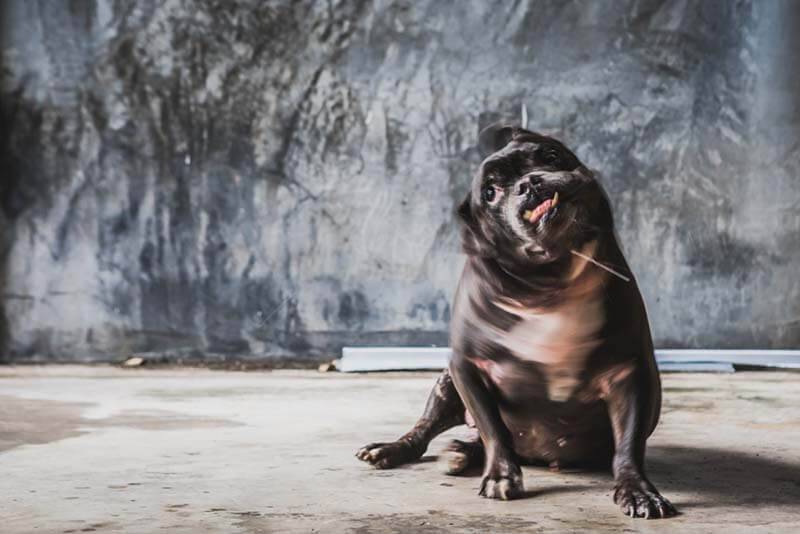
Itching
The most common cause of itching is flea allergy dermatitis (an allergic reaction to flea bites). On the photo of itching all over the body, the pet can shake its head and ears.
Injury to the head and ears
A cut, abrasion, burn or bruise, an injury from a bite from another dog, even an insect bite can cause pain and itching, which the dog tries to get rid of and shakes his head.
Headache
Few people think about it, but dogs, like people, can get sick or dizzy. This condition is often associated with high or low blood pressure, a sudden change in weather, stress, metabolic problems (for example, diabetes), vascular pathologies, or neoplasms in the brain. Outwardly, it may seem that the dog is shaking his ears, but in fact he is trying to get rid of the pain or the feeling of loss of orientation in space.
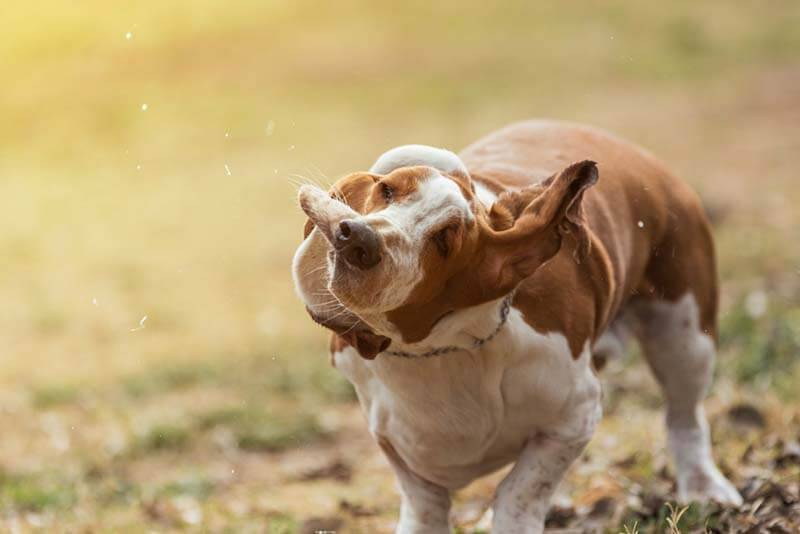
Additional symptoms
Mud, mat, or water in the head area cause anxiety in the dog, a desire to shake off. In addition, she may rub against the carpet, furniture or the owner, trying to get rid of what is bothering her.
Foreign body in ear canal can cause this behavior when dog shakes her head or her head is constantly down (turned).
Outer otitis may be accompanied by profuse fetid discharge from the auditory canal (usually with bacterial or fungal otitis media, also with inflammation in the ears caused by an allergic reaction), with otodectosis, there may be many dark dry crusts in the ear, similar to ground coffee.
Otitis media rarely causes active head shaking, and is most often a complication of otitis externa. In this situation, the dog’s hearing may be impaired.
Internal otitis rarely makes the animal want to shake its ears, more often the head will turn to one side, torticollis (incorrect positioning of the head), and depression.
Itching, caused by flea allergic dermatitis, is not always easy to recognize, because fleas on a dog can not be seen. But the traces of their stay – small dried droplets of blood, similar to grains of potassium permanganate – are easy to find.
Head injury it can be both obvious, in which there will be a noticeable violation of the integrity of the skin, a change in its color and swelling, and hidden from the eyes. With a bruise in the brain or a neoplasm in it, the dog may experience a violation of coordination of movement, the pupils may be of different sizes. Often found deafness or blindness, unusual reactions to familiar stimuli.
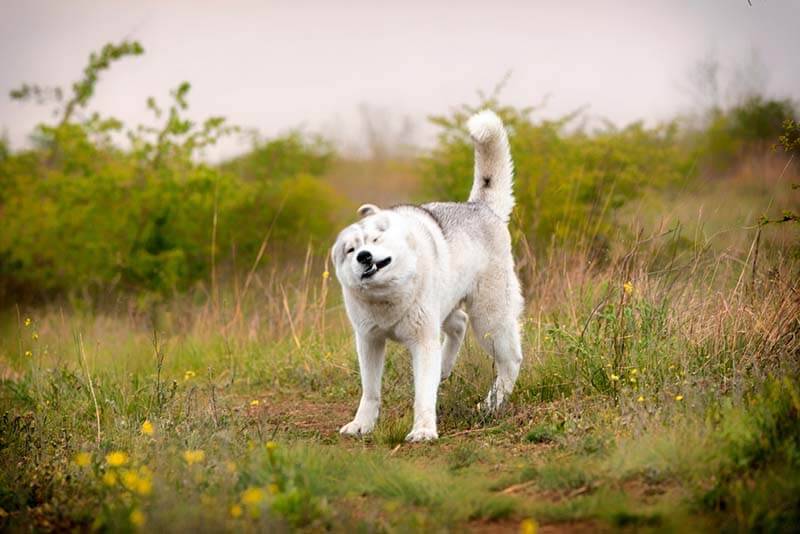
Diagnostics
Dirt, tangles or water on the head can be detected by inspection and palpation, the owner is quite able to cope with the task on his own. For long-haired dogs, it is especially important to pay attention to the area behind the ears (this is where tangles most often form).
A foreign body in the ear canal is a more insidious thing. It is not always possible to see it without special equipment, because, as already mentioned in the article earlier, the dog’s ear canal is very long and curved, and in order to properly examine it as a whole, a special device is required – an otoscope. To check the ear of a restless patient, it is sometimes necessary to perform an otoscopy procedure under anesthesia.
Otitis externa, whatever it is caused, is usually easy to detect, but diagnosis requires the participation of a specialist precisely in order to accurately establish its cause and select the optimal treatment. To do this, the doctor will conduct an external examination, palpation (palpation), take a smear and / or scraping from the ear to examine the contents under a microscope, and perform an otoscopy. It is important to examine the whole ear carefully with an otoscope and establish that the tympanic membrane is intact. In addition, a neurological examination and MRI may be required.
Diagnosis of conditions accompanied by itching is carried out by a veterinary dermatologist. First of all, a general examination is carried out, in which the severity of itching is assessed (there is even a special scale for this!). Flea allergy dermatitis is further ruled out as the most likely diagnosis (trial treatment may be applied). In continuation of diagnostic manipulations, other parasitoses, food and contact allergies, microsporia (lichen), dermatitis (skin inflammation) are excluded.
An injury to the head and ears can usually be identified by examination and palpation, but sometimes x-rays, ultrasound, or MRI may be needed to clarify its severity.
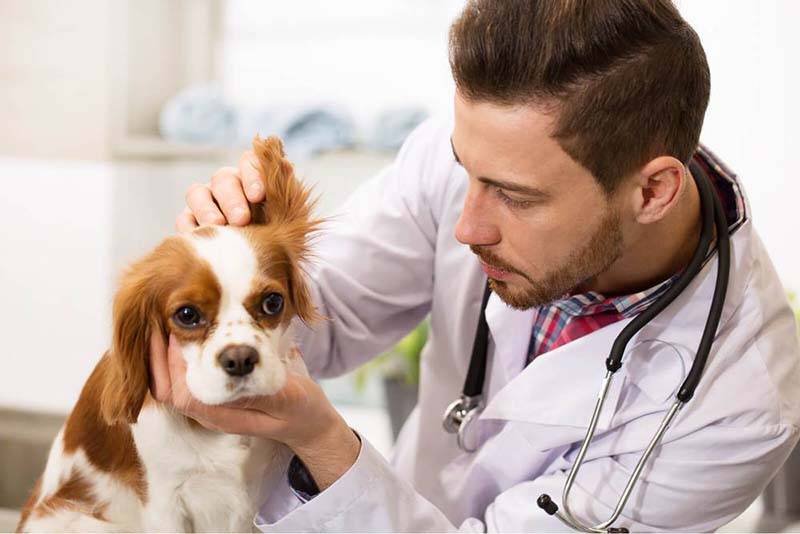
Treatment
Removal of dirt, tangles or an object stuck to the head or ear is most often possible without the involvement of a veterinary specialist – by the owner or groomer.
A foreign body from the ear canal should always be removed by a veterinarian using special tools. Usually the procedure takes place under anesthesia, and it is very important to examine the entire external ear and eardrum after it, to make sure that it is intact.
Treatment for otitis media depends on the underlying cause. These can be drops, ointments or gels that are placed in the ears. They contain antibacterial, antifungal or insectoacaricidal (from ticks and insects) components.
If a violation of the integrity of the eardrum has occurred, then the use of most ear drops is prohibited!
Do not be surprised that the doctor will prescribe systemic drugs for otodectosis (ticks in the ears) – drops or tablets.
Flea allergy dermatitis can be cured by treating the dog for parasites, but this is only part of the remedy. It is also important to process the places of her stay, destroying not only adults, but also flea eggs. Repeat the treatment of the dog is required for life.
Food allergies are usually treated by eliminating the offending food from the diet. For this, an elimination diet is carried out, which the dermatologist always selects individually.
Trauma treatment can be varied and depends on the specifics of what happened. Open wounds are sutured, treated with ointments or powders. If they have an infection, antibiotics are prescribed.
Soft tissue contusions in dogs are rarely diagnosed and treated. And such significant brain bruises, which caused neurological symptoms, are treated with systemic drugs (to reduce the formation of edema, hematoma, or to stop them as soon as possible) to maintain the body until recovery. Sometimes it is necessary to surgically drain the hematoma (drain the blood if its accumulation puts pressure on the brain).
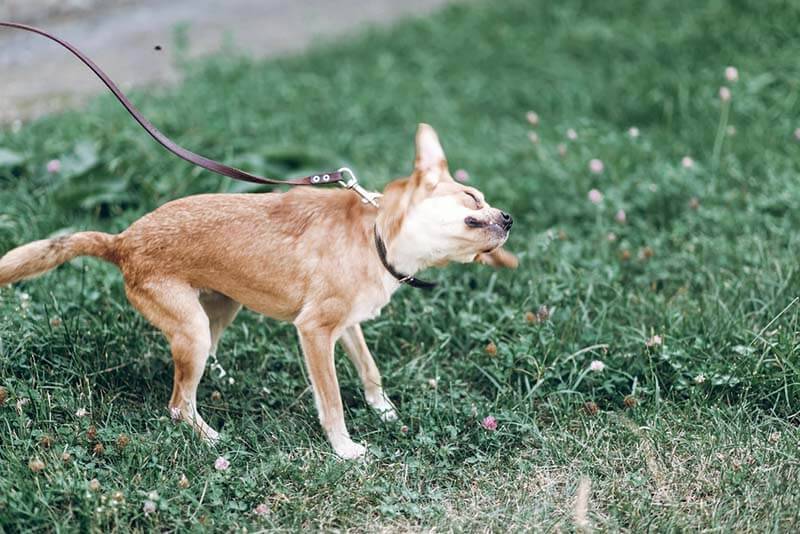
If the puppy shakes its head
If the puppy is shaking his head, it is most likely that he has an ear mite. But all other problems in the area of the ears and head in babies happen.
Puppies are very gentle creatures, and even minor discomfort in the head and ears can significantly reduce the quality of life of the baby. If you notice that he is shaking his head, scratching his ears with his hind legs, do not waste time, contact the clinic.
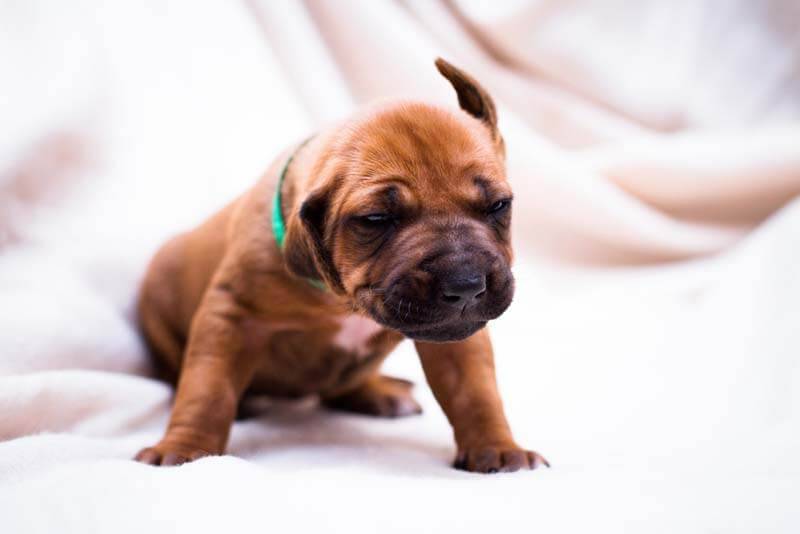
Problem prevention
Of course, there is no specific prevention of the occurrence of a situation where the dog often shakes its head. But compliance with hygiene and zootechnical standards of maintenance will make it possible to avoid dirt and tangles in the head area.
Never clean your dog’s ears with cotton swabs.
Timely carrying out of planned treatments for parasites – ticks and fleas on the body and in the ears (otodectosis) – will help to avoid the most common causes of winding ears.
If external otitis has already happened, then its timely treatment will prevent complications – the appearance of otitis media and internal, rupture of the eardrum.
Injuries in the head and ears are accidents, their prevention is raising a dog, observing cynological ethics (do not let pets run up to other animals and people until they expressly consent), driving dogs on leashes in the city.
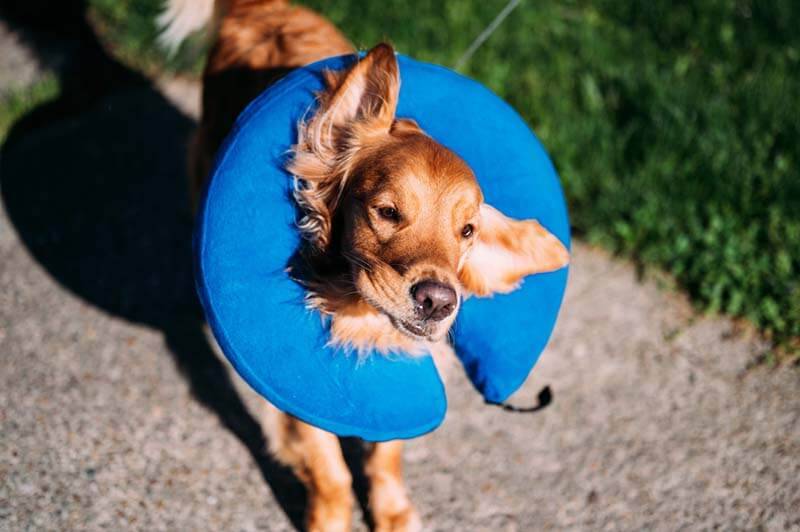
Summary
The most common reasons why a dog shakes its head or ears are itching and pain in the outer ear area caused by otodectosis and otitis media.
Healthy ears don’t smell.
If you do not find damage, dirt or water, and the pet often shakes its head, then you will need the help of a veterinarian.
Do not use drops in the ears without the advice of a doctor. If the integrity of the eardrum is broken, it can greatly harm the dog.
If you notice that the dog’s head is constantly tilted to one side, pupils of different sizes, the muzzle looks asymmetrical, then you need to contact a neurologist – such symptoms may indicate inflammation or a neoplasm in the inner ear. It is very dangerous!
Answers to frequently asked questions





